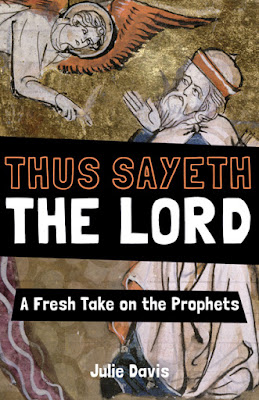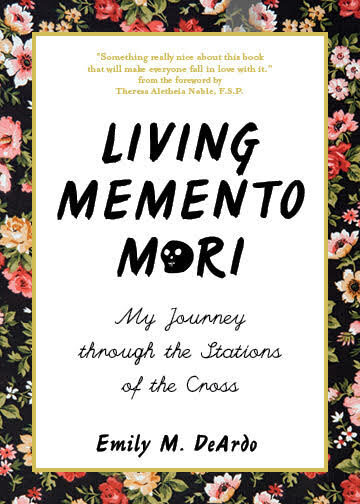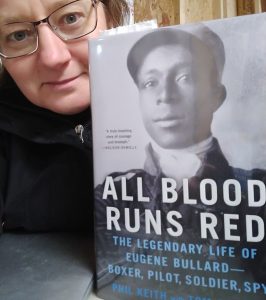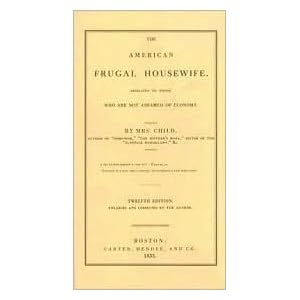This is my long overdue post on what I’ve been reading and what I’ve got in the queue, some of it Lenten some of it not (except, of course, that everything is Lenten).
For my top picks of family-friendly Holy Week videos, look here.
Simcha’s Lenten Family Film Festival is here, and Julie Davis has a starter pack of Lenten viewing here, but her whole blog is a treasure trove of reading and viewing suggestions.
***
My Good Friday go-to is Thomas à Kempis’s On the Passion of Christ. I read a little bit more of it every year.

So no, I wasn’t kidding when I recommend partial-book reading as a Lenten strategy. It’s a thing. Sometimes a very spiritually fruitful thing. This is definitely a book for which a single meditation — even just a few paragraphs — can go a long, long ways.
Not recommended for those prone to scrupulosity. Ideal for those prone to laxity. Great example of using one’s imagination to immerse oneself in Scripture as a method of prayer, btw.
And hence: Not for the scrupulous. Just no. NO!
If you are prone to scruples, for goodness sakes do like my kid did today, unbidden, and grab a few of Pauline Media’s Encounter the Saints books. Good for kids, ideal for busy adults who need a quick inspiring read that will challenge your faith. Can’t have too many of these.
Just finished: All Blood Runs Red: The Legendary Life of Eugene Ballard — Boxer, Pilot, Soldier, Spy by Phil Keith and Tom Clavin. I give it . . . I dunno. A lot of stars. Also, I demand a mini-series. Talk about non-stop fodder for period drama . . . the adventures just. never. quit.
Of Catholic interest: Somewhere along the way, Eugene Ballard managed to become a Catholic, often a lousy but also compulsively-heroic Catholic, and he died reconciled to the Church. The biography doesn’t treat his faith very extensively, which is probably just as well; when THEY MAKE THE MINI-SERIES, which I demand, they’d better not screw up the Catholic part.

Did I mention I demand a mini-series? This is a great story.
Currently reading:
I apologize if you thought I was reading Lentier-stuff. Well, these are Lenty each in their way. Everything is Lenty.
Okay but I have another one open that is properly Lent-themed:
Just Sayeth the Lord: A Fresh Take on the Prophets by Julie Davis.

I’m a few chapters in, and so far so good. Down-to-earth recaps, explanations, and meditations on the stories of various prophets. Based on the what I’ve read, I’d definitely consider this one as a choice for a parish book club or Bible study, ages teen and up.
Readable, does not assume a particular level of background knowledge, does provide spiritual insights useful to those who are already well-studied.
It is of course no secret I’m a Julie Davis fan. Her other two books are quite different and heartily recommended:
(Head’s up: At this writing I am not active on Goodreads, so please don’t try to message me there and then wonder why I’m ignoring you.)
Next Up:
Living Memento Mori: My Journey Through the Stations of the Cross by Emily DeArdo. I’ve actually kinda sorta already read this book? But not exactly.

Emily is one of my favorite internet writer-friends, and she let me take a look at the original manuscript for this book back when we were trying to figure out who would be the ideal publisher.
Ave Maria was the winner, and their request was that she organize her memoir around the Stations of the Cross — if you didn’t know this already, one of the things publishers do with book proposals and manuscript drafts is come back to the author with requests for how to modify the book to better serve their readers. It’s up to the author, of course, to decide which suggested changes fit with the goals of the book and when it’s time to stand firm (even at the cost of walking, if it comes to it); Emily obviously decided that the stations theme worked with her story, and I trust her instincts on that one.
I haven’t read the Stations of the Cross version, and no, I don’t feel, for a moment, that somehow that framework will become obsolete come Easter. I have a sneaking suspicion, sorry to say, that Momento Mori is going to remain a pertinent theme for many months to come.
In the future I am going to recommend that Emily write something like My Memoir of Everything Being Awesome and Life is a Cakewalk, and maybe world events will take a hint?
And finally, you knew it was coming, I’m eager to finally be able to crack open The Contagious Catholic: The Art of Practical Evangelization by Marcel LeJeune.

Call it Providence or coincidence, but I assure you Catholic publishers don’t get six months advance notice on upcoming world events and tailor their book titles accordingly.
In what is definitely Providence, here’s the story of how we ended up writing overlapping books coming out within just months of each other: I had a brief online conversation with Marcel about the same time I was pitching my book proposal to OSV. He mentioned in conversation that he had a book (he didn’t elaborate on the specific topic) in mind but had no idea when he’d get around to writing it or finding a publisher for it.
So I figure: Okay, he’s the guy to write about a book about this, but he’s not writing the book.
Makes sense. He’s a really busy guy running a major ministry teaching people how to evangelize, and his priority is to do the thing. So someone needs to write the book on how to do the thing. We get lots and lots of people who are excited about evangelization but are seriously wondering, “Okay, how do we do this?” because they’ve never been in a parish where evangelization and discipleship happen for serious.
I’m a writer. I’m not running a major ministry that is sucking up all my time. He can do the thing and I can write about the thing. I guess I’ll do that.
There is no way — let me repeat: NO WAY — I would have even proposed my book if I’d known Marcel was writing his. So it’s a good thing I did not know that he was going to end up finding time to get his manuscript together, because he has read my book now, and here’s his verdict in his email feedback to me:
You hit a lot of areas that I did not, and it seems the most important ones were covered in our own ways by both of us.
That sounds about right. You can check out the Catholic Missionary Disciples blog here to get a feel for Marcel’s writing style and the topics that interest him, how he and I overlap each other, and how is depth of experience is going to bring a different perspective than mine.
Anyway, now that I’m finally done with edits (other than a final look after the copy-editor has finished cleaning up the no-good, horrible, very-bad typos I’ve already identified from my “final” draft after pushing the send button), I’m free to read Marcel’s book with no risk of accidental plagiarizing, and so that’s what I am itching to do.*

For today’s photo penance, let’s do a fresh young face from the camera roll: A child of mine in attendance at a Family Honor parent workshop SuperHusband and I were giving last year. This is what happens when you let her borrow your laptop.
*If you’re wondering: I’m pretty strict with myself about not reading other people’s blog posts or books on a topic I’m actively writing on, except if I’m explicitly researching a response to that literature. So I spent many months not clicking through on Marcel’s blog links because I didn’t want his voice getting confused with my own while I was actively writing.
Could I recommend you read, memorize, and internalize every single thing he writes on his blog? Yes. I recommend that.
And then go do the thing. DO. THE. THING. Thank you.

![On Killing: The Psychological Cost of Learning to Kill in War and Society by [Dave Grossman]](https://m.media-amazon.com/images/I/51xlYFvYCYL.jpg)
















